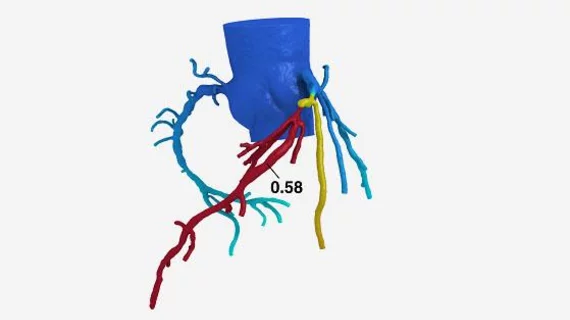Experts debate clinical impact of HeartFlow's noninvasive cardiac imaging
Since receiving FDA approval 2014, HeartFlow has raised almost $500 million for its non-invasive cardiac test that uses CT scan data to create 3D images of coronary arteries.
While company investors are banking on the technology’s ability to detect cardiovascular disease more safely and earlier than current methods. Many experts question whether the technology prevents unnecessary procedures or actually causes them, according to an article published Aug. 27 by Forbes.
HeartFlow told Forbes that for every $1,450 test, it prevents $4,000 in testing or treatmen, but many remain skeptical regarding the technology’s overall usefulness, financial benefit and clinical impact.
“The technology’s usefulness may come down to a deeper question: How effective are stents for treating heart disease, and do you even need to know whether an artery is open or not?” according to the article.
Read Forbes’ entire article below.

